It is a twin-lens reflex camera (TLR) produced in the United States in 1948-1951, a period of only 2 years in total. The camera body is made of molded metal, covered with black leatherette, simple and beautiful, which is different from previous models and the next model with the camera body made of Bakelite. This model is developed from the Argus Argoflex E produced before World War II by adding F at the end, meaning there is a hot shoe flash sync attached to the left side of the camera. But it can only be used with flashes produced specifically for that model at that time. It cannot be used with general flashes and flashes used today. The Argus Argoflex EF is a true TLR camera, that is, a pair of lenses, viewing and taking pictures, moving the focus simultaneously by turning the ring on the front lens. There is a gear on the connecting ring. But after this model, Argus only produced cameras that are pseudo-TLRs. The lens has a fixed focus and uses a zone focus system instead. ...
The camera body is smaller than its predecessors. It uses 620 film rolls, which are smaller than 120 film rolls, and cannot be converted to 120 film rolls like previous models. It can take 12 photos measuring 6x6 cm. In terms of camera operation, aside from the film roll dial on the side, all settings are on the front lens. On the back of the camera, there is a transparent red circle with a light-blocking on/off switch for viewing the numbers on the back of the film. On top, there is a cover to open and close the waist-level viewfinder. Under the camera, there is a tripod screw hole.
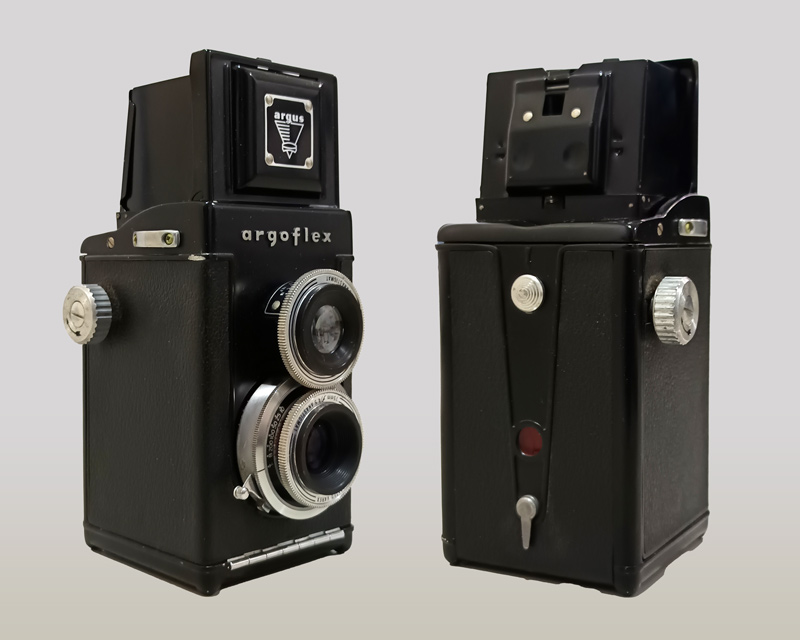
The two 75mm f/4.5 front lenses are coated with three Argus Verx Anastigmat elements, with the rear two fixed to the camera body. The front element moves in and out to focus with the rotation of the front ring, connected by a gear. The Argus Argoflex EF is one of the few cameras that has the same top and bottom lenses. Most twin-lens cameras, in order to cut costs, use the cheaper top viewfinder lens, which is intended for viewing only.
Let's take a look at the details and different parts of using the camera.
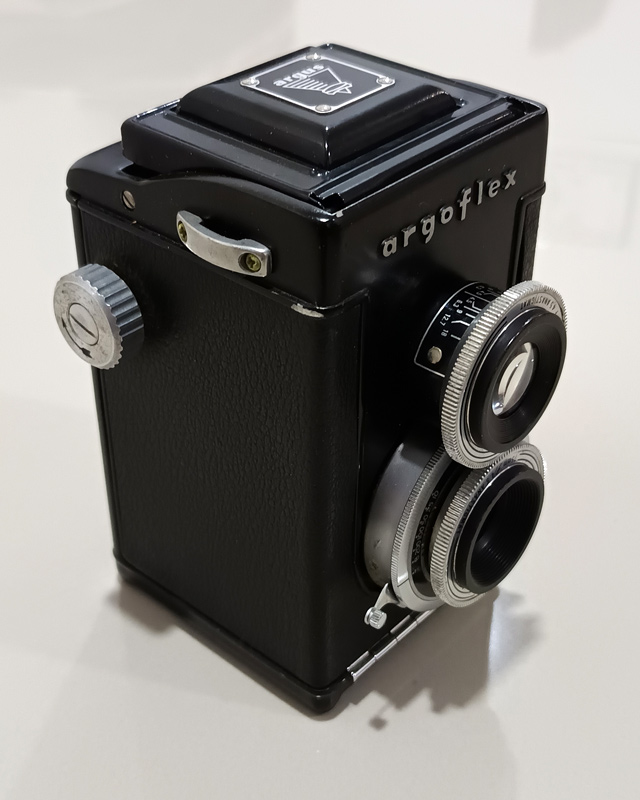
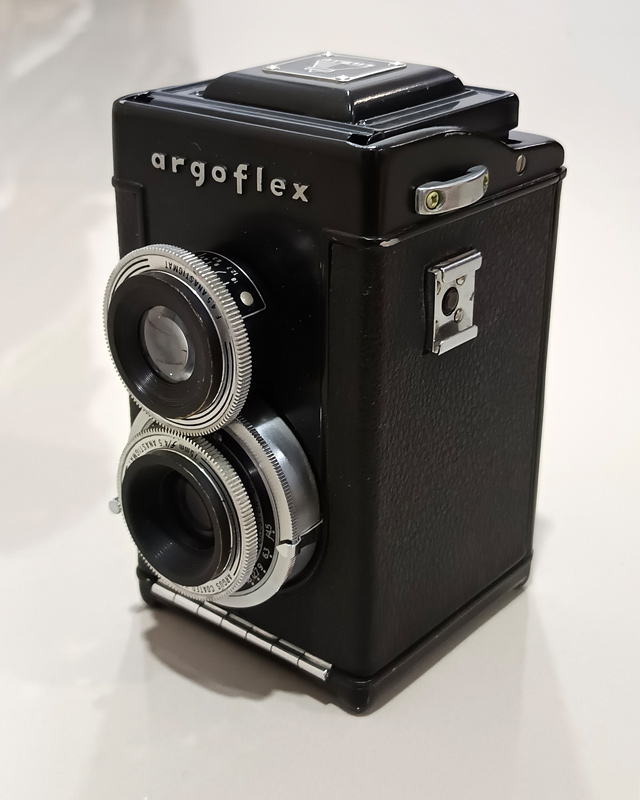
On the camera body, there is a cover, a viewfinder.
On the right side of the camera, there is a strap for a neck strap, a dial for rotating film rolls inside the camera.
On the left side of the camera, there is a strap for a neck strap, a flash mount (made specifically for this model).
On the front, at the top, is the classic argoflex logo, beautifully done. Below that are the dual lenses, the upper one for viewing images, the lower one for taking photos.
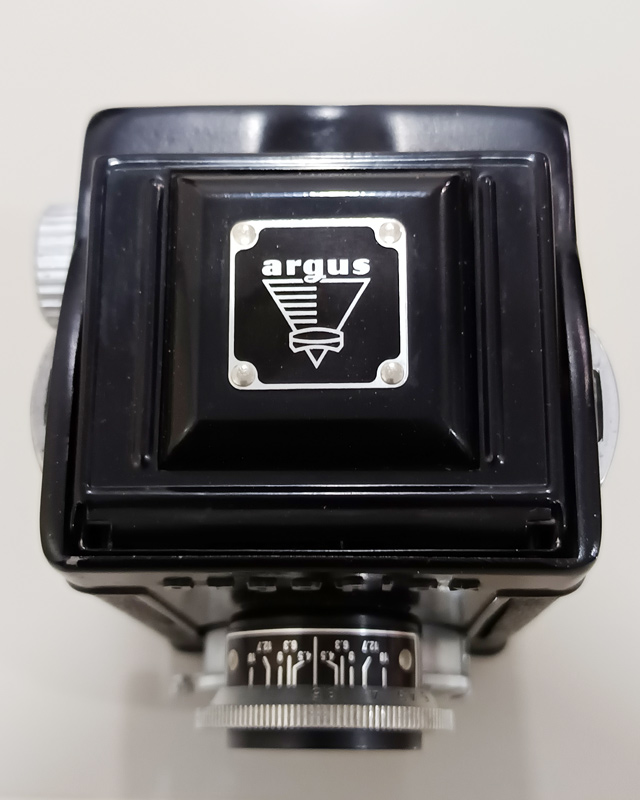
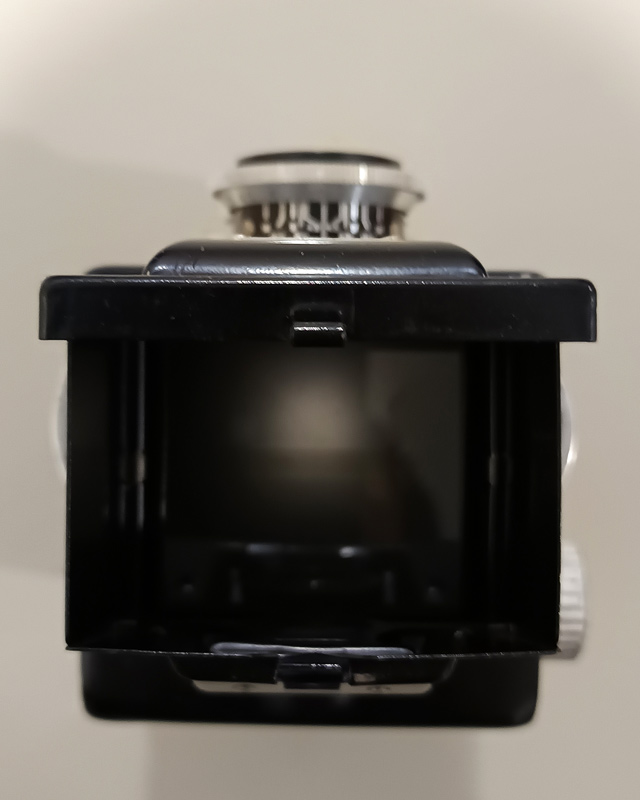
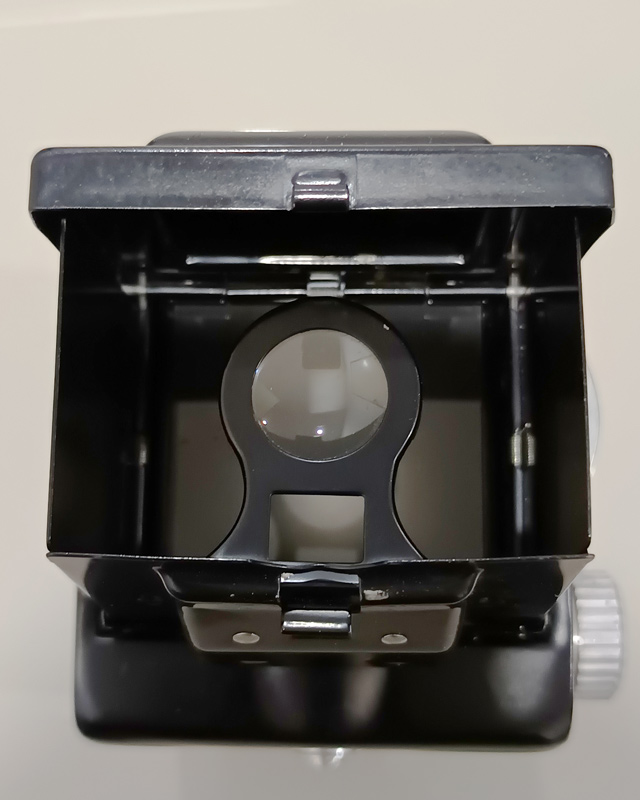
The top cover has a beautiful Argus logo. When opened, you will see a mirror reflecting the image from the top lens set for composing the image. There is a magnifying glass to help with focusing.
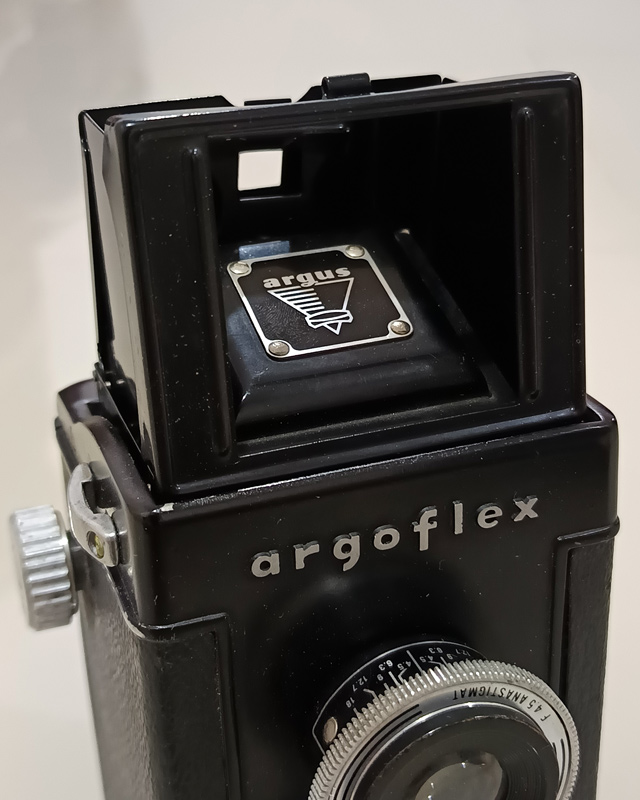
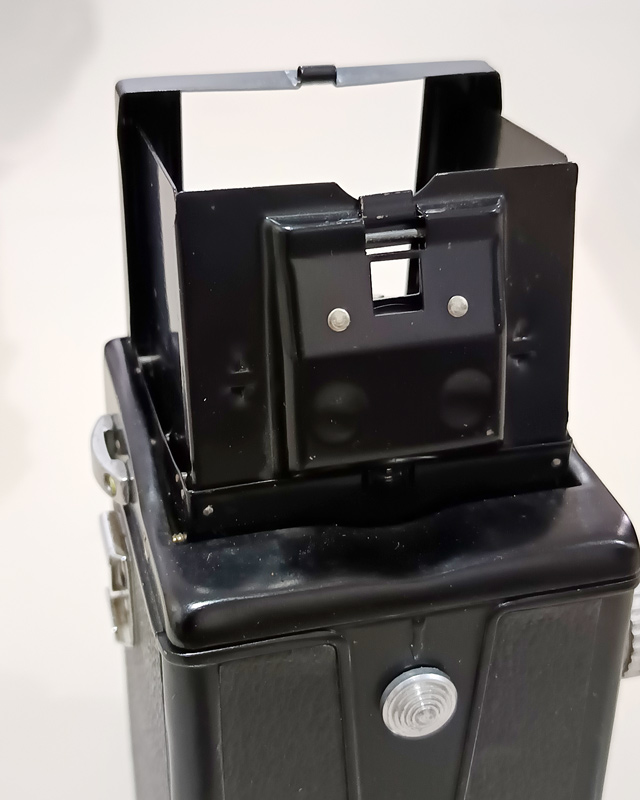
The front of the top cover can be flipped inward to allow eye-level viewfinder use by aiming from the rear square to the front viewfinder.

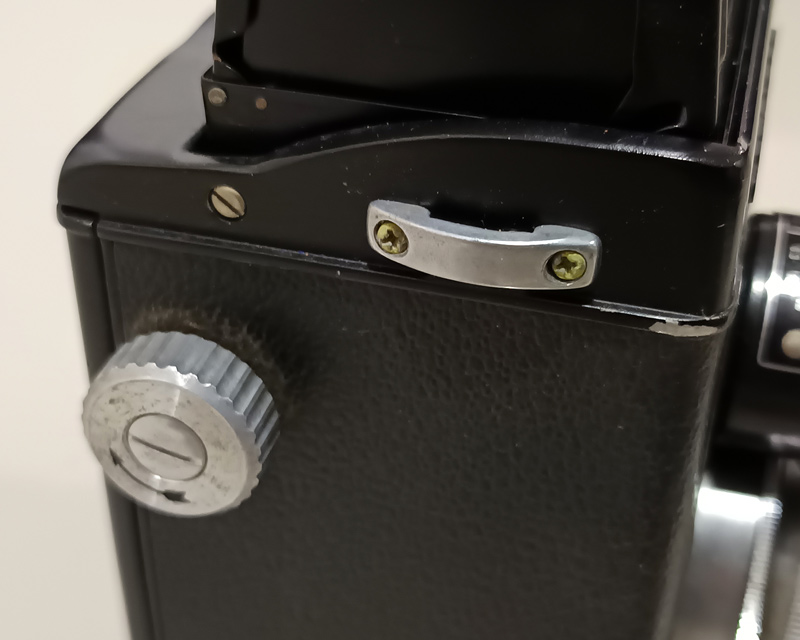
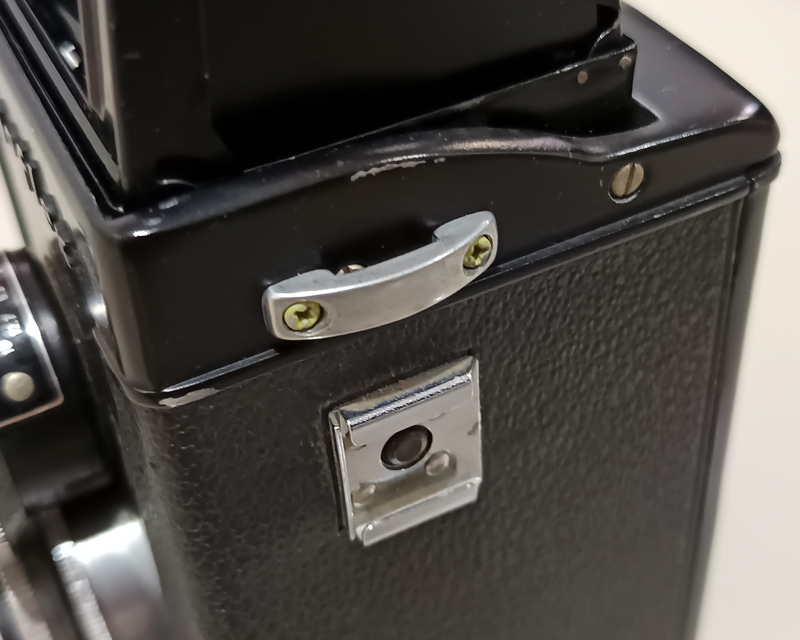
Open the front and back cover.
On the right side of the camera, there is a dial for film advance and a strap for a neck strap.
On the left side of the camera, there is a slot for a flash. It must be a flash that is specifically made for use with this camera. Current flashes cannot be used and there is a strap for a neck strap.
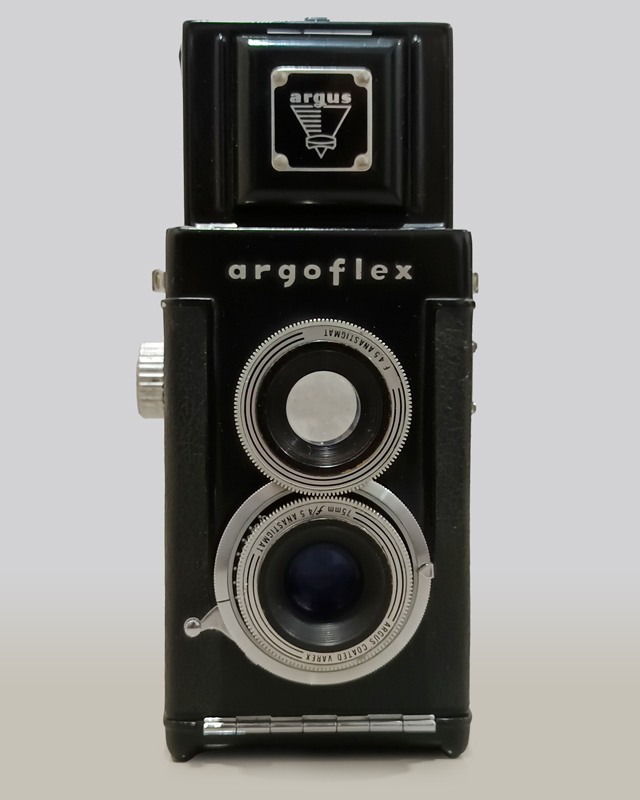
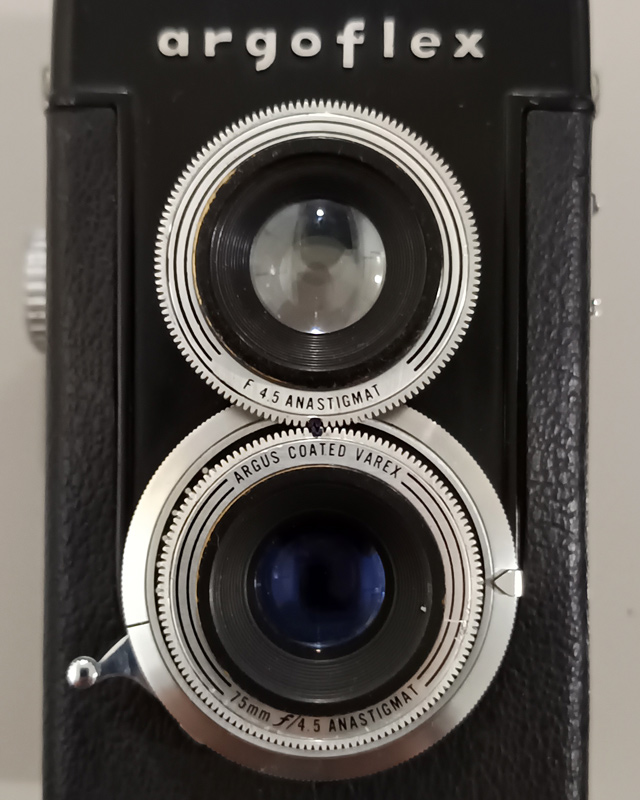
Front view, top cover, argus logo and the camera body has a beautiful Art Deco argoflex logo.
Twin lenses, geared together, are ARGUS COATED VEREX 75mm f/4.5 ANASTIGMAT lenses. When the front ring is rotated, the focus distance is rotated simultaneously.
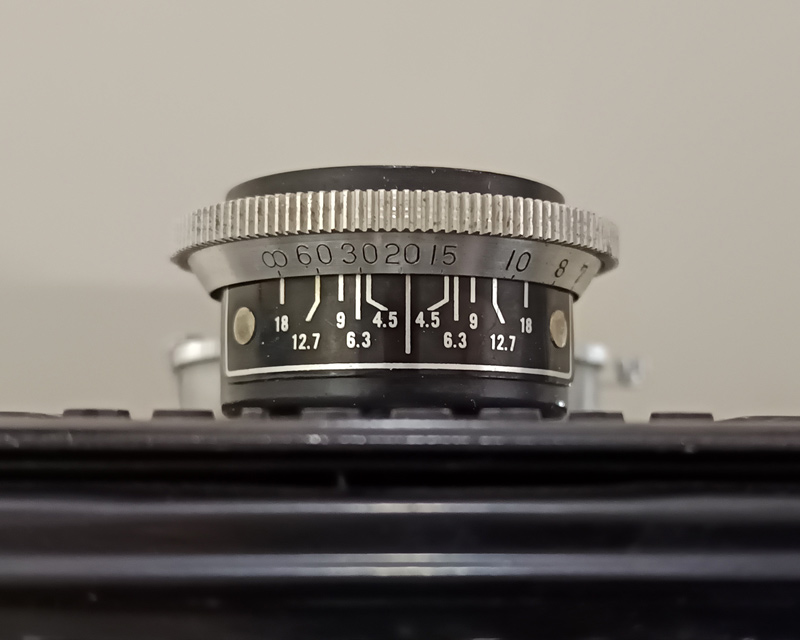
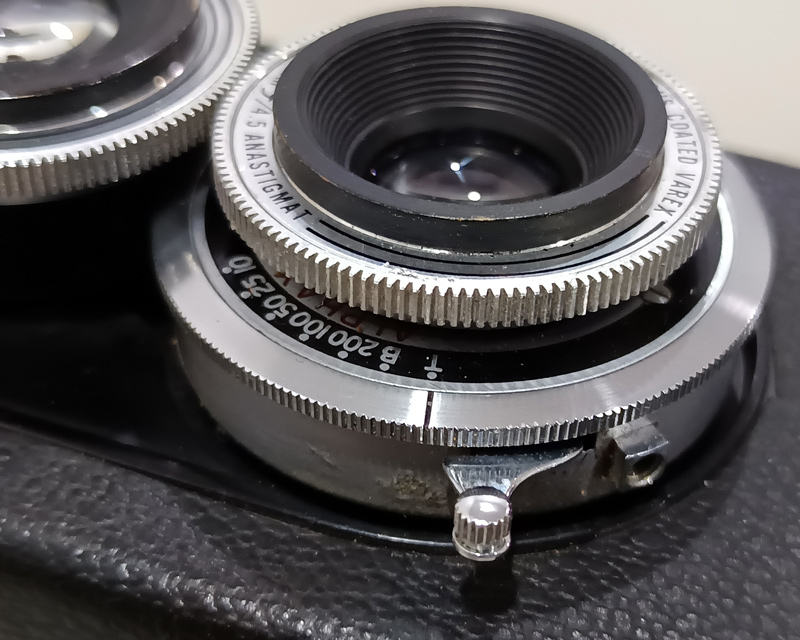
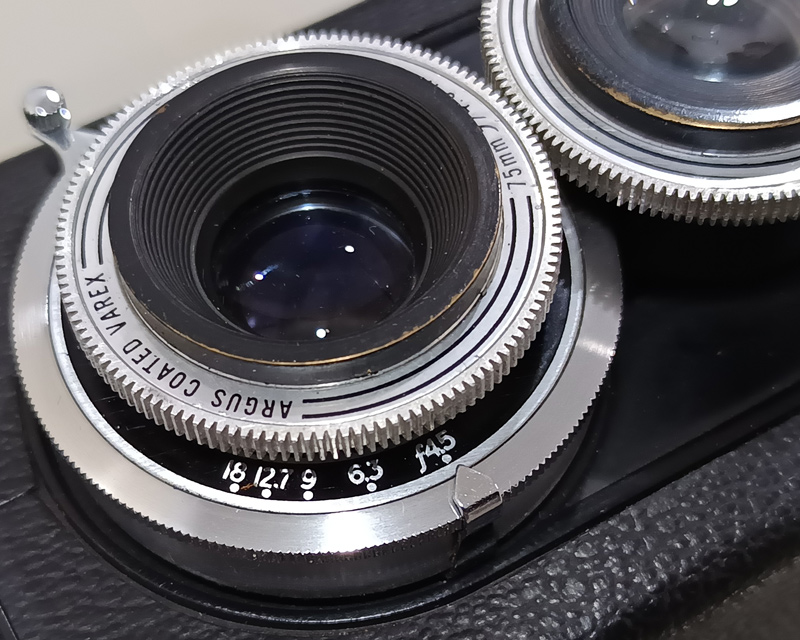
The viewfinder lens set, the top has a scale indicating the focus distance and depth of field.
The right side of the lens, the bottom set, the shutter speed adjustment ring, has a number indicating the shutter speed, a shutter switch, and a screw hole for the shutter release.
The left side of the lens has a lever for adjusting the aperture value and a number indicating the aperture value.
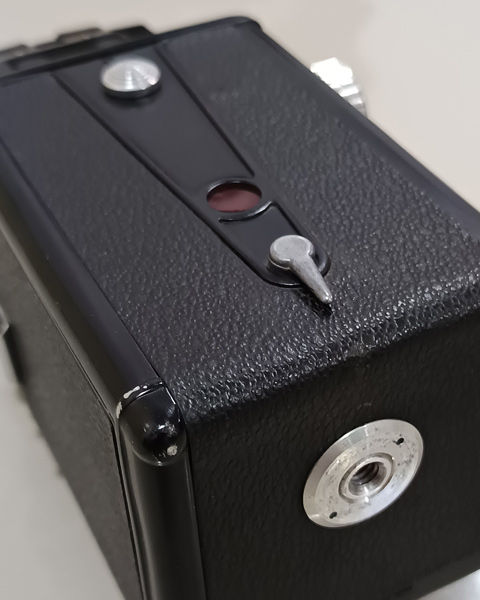
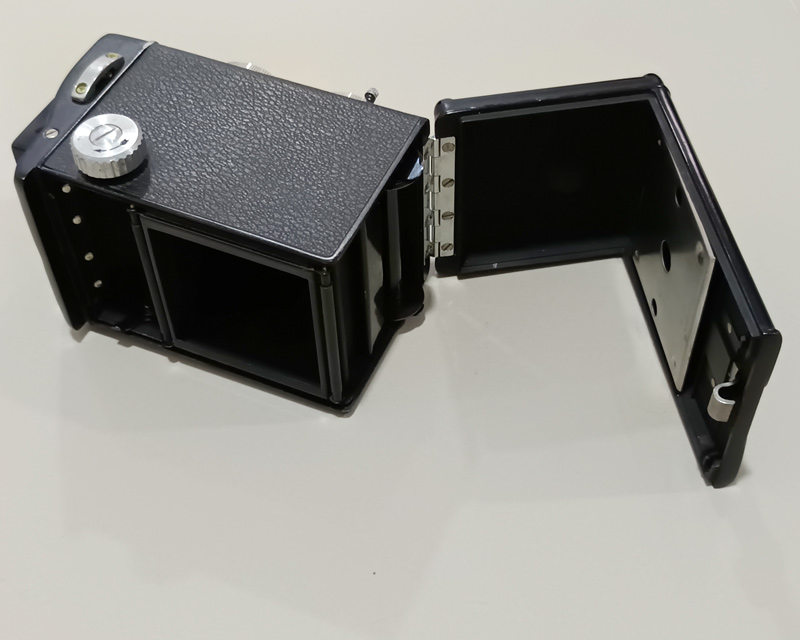
On the back, at the top, there is a button to open the back cover, a transparent red circle to see the numbers behind the film, a button to open and close the window to see the numbers, and below, a screw hole for a stand.
Push the top circle down to open the back cover to insert or remove the film.
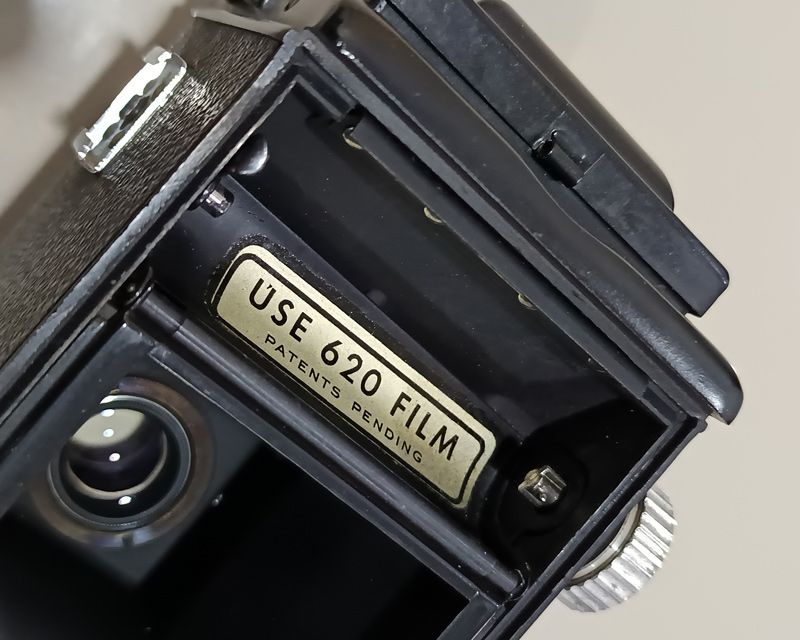
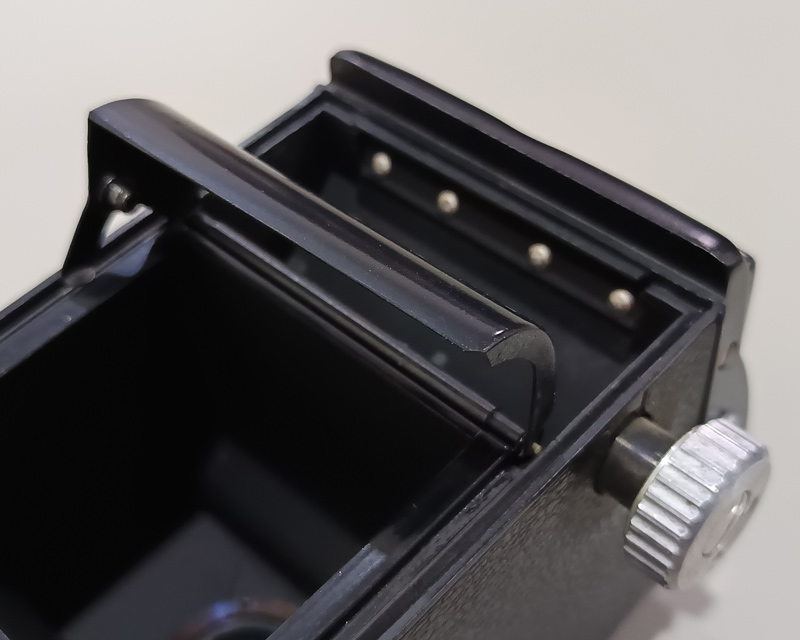
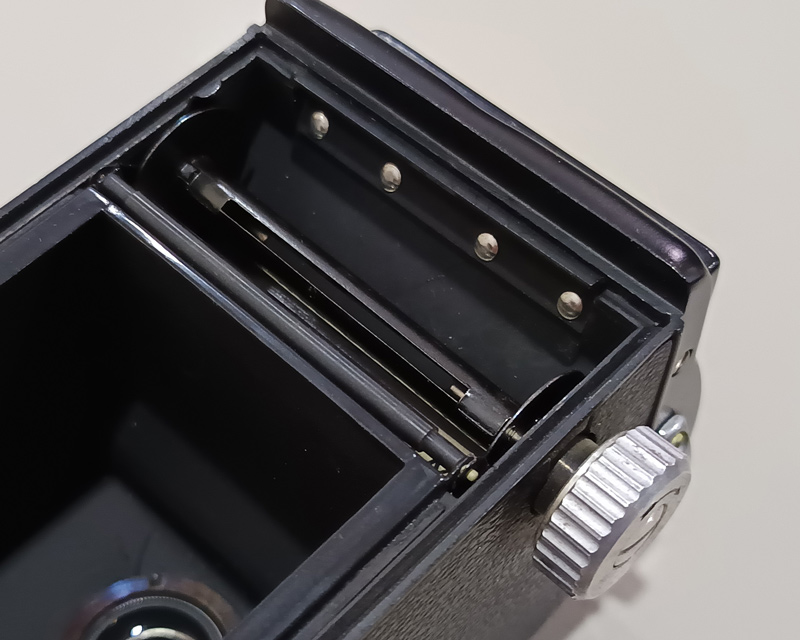
The top film slot has a sticker saying it is for 620 roll film.
Pull out the film roll knob on the side to pull out the slot for the film spool.
Insert the empty film spool and push it back into place. Rotate the film roll knob so that it fits into the film spool so that the film spool can be rotated.
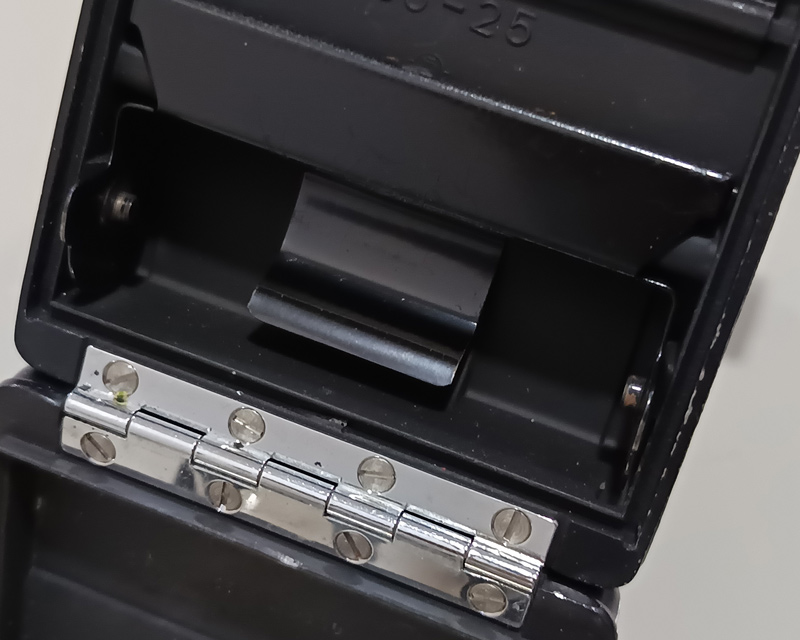
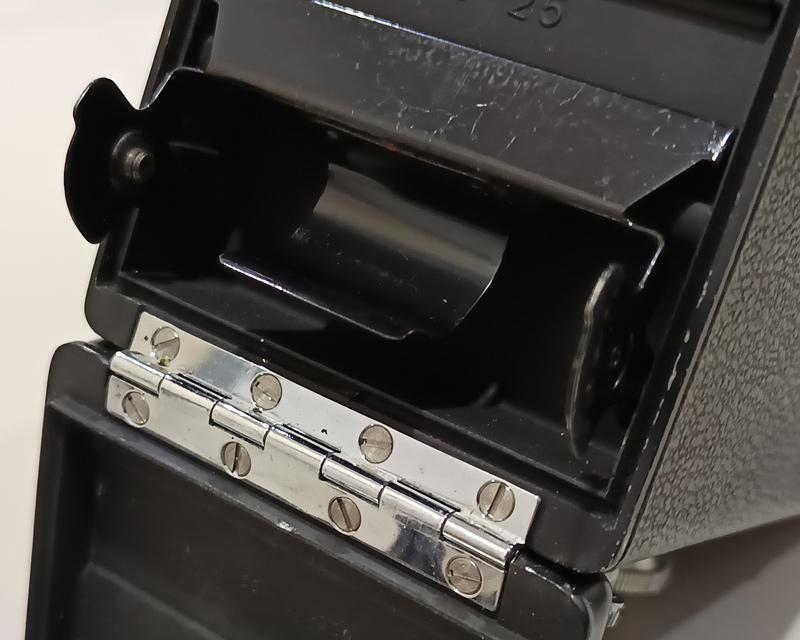
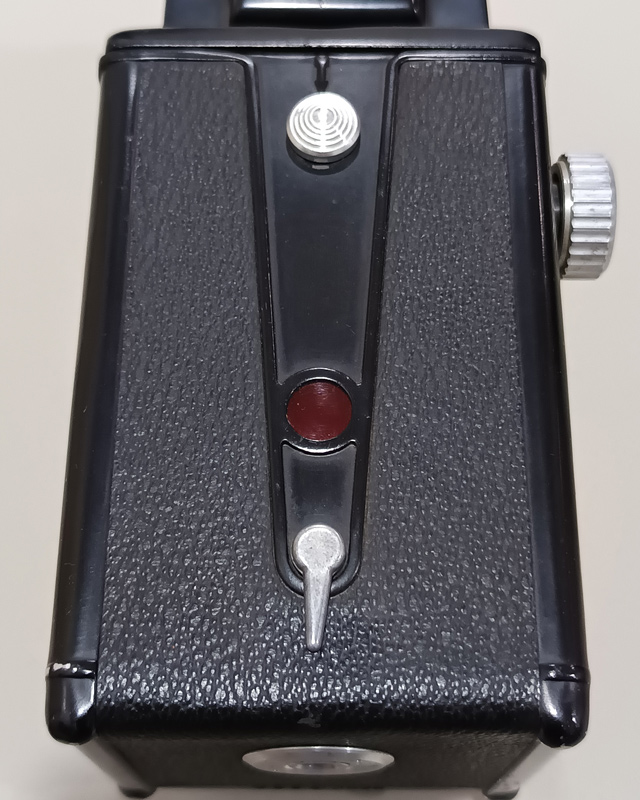
The film slot at the bottom is for inserting a new roll of 620 film that you want to use for taking pictures. Pull out the film slot, insert the film into the axis, and push it back into place.
After loading the film, close the back cover, turn the film until you see the number 1 in the red circle at the back, and it is ready to take pictures.
Sample images from the Argus Argoflex EF camera.
3 November 2024
Argus argoflex EF
Argus Coated Varex Anastigmat 75mm f/4.5
Lucky SHD400 : Paradinol 1:100 20c 30:00m
Epson V600 : Photoshop : Digital Contact Sheet
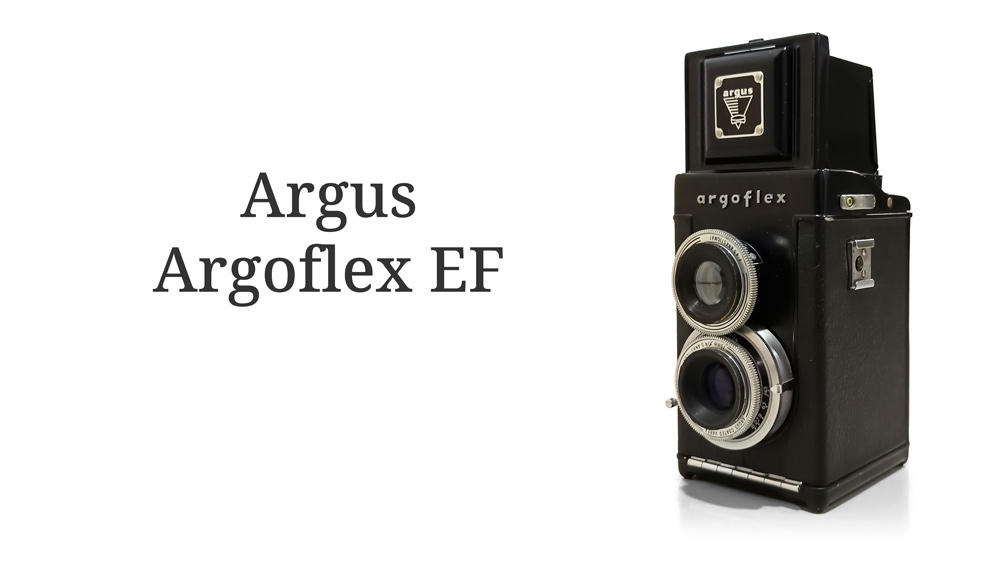






Comments powered by CComment